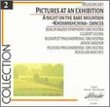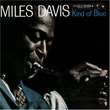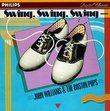| All Artists: Jean Sibelius, Thomas Beecham, London Philharmonic Orchestra Title: Sibelius: Symphony No. 2; Tapiola Members Wishing: 0 Total Copies: 0 Label: Classica D'oro Original Release Date: 1/1/1946 Re-Release Date: 10/2/2001 Genre: Classical Styles: Forms & Genres, Theatrical, Incidental & Program Music, Historical Periods, Modern, 20th, & 21st Century, Symphonies Number of Discs: 1 SwapaCD Credits: 1 UPC: 723724149526 |
Search - Jean Sibelius, Thomas Beecham, London Philharmonic Orchestra :: Sibelius: Symphony No. 2; Tapiola
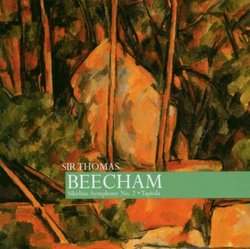 | Jean Sibelius, Thomas Beecham, London Philharmonic Orchestra Sibelius: Symphony No. 2; Tapiola Genre: Classical
|
Larger Image |
CD DetailsSimilarly Requested CDs
|
CD ReviewsHistorical recordings. jean couture | Quebec city - Canada | 11/11/2005 (5 out of 5 stars) "THESE magnificent 1946-47 recordings of Jean Sibelius's 'Tapiola' and Symphony No.2 offer more insights to the great conductor's knacks for the Sibelian idiom. In 'Tapiola', Beecham is roughly as persuasive as is Robert Kajanus's laudable 1932 recording (with the London Symphony Orchestra). In my opinion, this London Philharmonic version is quite comparable to the best from the Royal Philharmonic and fares a bit better than the exalted Helsinki reading of 1954. There's also an interesting account from Boult (LPO, 1956) : However no competition to the Beecham, it still offers an intriguing view on a classic by Sibelius.
Referring to Andrew Clements's effective comments about 'Tapiola', in Guardian Unlimited, "the starting point was Finnish mythology - Tapio was the god of the forest, and his kingdom was Tapiola. But though some of Sibelius's orchestral writing is an evocation of that mysterious world - the whirling strings of the coda, for instance, inescapably conjure images of the wind through the forest trees - many analysts have treated the movement as a drastically compressed symphony." In any case, Beecham does rarely deceive in his interpretations of Sibelius---the differences between a given version and another are also substantial in view of recorded sound and "live versus studio" environment. Therefore, i am not inclined to evaluate a record solely on the basis of "sound". That is, the LPO version of 'Tapiola' is unerringly excellent, with articulation and that kind of zest which only occurs on rare occasion. The concluding storm, although it doesn't manage to surpass the great Karajan/Berlin on EMI, blows with tumult and has a relentless supply of motion : All this with the stark ability of Beecham to elucidate the differentiations of timbres and textures, crucial in that quasi symphonic work. In contrast to the frantic Koussevitzky of 1939 (in Boston), a glorious reading if there ever was one, Beecham is more "temperate" and much in the style of Kajanus. Koussevitzky, in his own approach, presents a most convincing view of 'Tapiola', one that makes one look at the work from a different angle. The present reading of the Second Symphony is moderately swift and lively ; in keeping track with the pace and rhythmic stream, the conductor vows to achieve bona fide atmospheric allusions, true to the Nordic vastness of Sibelius's "world". On this mid-price disc the Symphony No.2 needs no apologize, as does the fine version of 'Tapiola'. From the very opening of the first movement (Allegretto) to the ensuing Andante - Ma Rubato, the music has a sort of glossy, ice-cold temperament, very much "in tune" with the northern pathos of Sibelius and Finland. Beecham's grasp of the Vivacissimo is taken with discernment and shows unparalleled charisma through a dedicated playing from the LPO. The Finale is carried out quite well, thanks to the swelling energy and concentration that the performance radiates. This is a Second that can rival the best ; even the stunning Anthony Collins / LSO from the mid-1950's is not a clearly superior reading, if only for better sound and a little more sweep in its momentum. In his thrilling BBC recording (1954) at the Royal Festival Hall, Beecham achieves quite an impressive result, still perhaps the finest example of how he championed the music of the great composer. In the Finale, though, nobody can duplicate Barbirolli in his startling account of 1940 (in NewYork) where the conclusion is driven with torrent-like, thundering intensity. If a version from Barbirolli is close in mood to the mono Beecham / LPO, then perhaps this could be the justly famed RPO recording of 1962 (reissued on Chesky), which was a second-to-none feat in gleaming, demonstration-like stereo sound. There is also a vintage (early 1930's) Kajanus performance of stature---a straightforward, crowning statement but slightly marred by a sound that shows its age. Despite the only average sonic quality of the Allegro reissue (although adequate) and the fact that dynamic range is limited, with a slight amount of background noise, this disc offers two great works for a cheap price. There are more compelling editions out there, for the CD under review is deprived of comforting liner notes and archival details, but then the music is still alive on this decidedly "no frills" reissue which i recommend unless you already own a finer edition.*****" |

 Track Listings (5) - Disc #1
Track Listings (5) - Disc #1
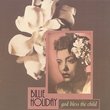
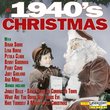
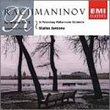
![Franz Lehar: The Land of Smiles / Gustafson, Hadley, Itami, Atkinson; Bonynge [in English]](https://nationalbookswap.com/cd//m/22/6122/6006122.jpg)

